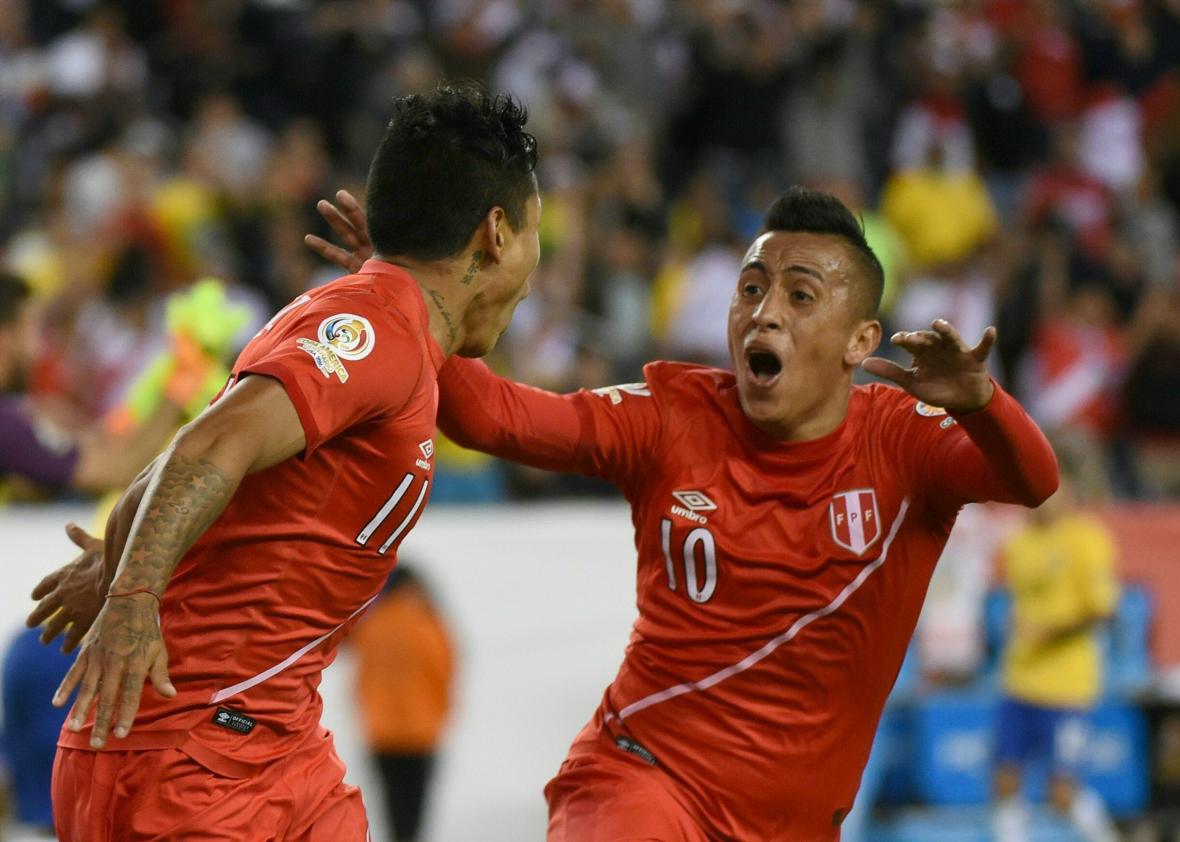When I was a kid, my father often explained the essential injustice of the world to me with the phrase, “Así es el fútbol.” Literally: That’s soccer. Its use is wide-ranging, covering all kinds of disappointments, large and small:
The girl you like doesn’t like you back?
Así es el fútbol.
Everyone, even the lazy kids, got the same grade on the group project?
Así es el fútbol.
You don’t like having a curfew?
Así es el fútbol.
And so on. There’s a hint of fatalism in it. A whiff of resignation. Of course, being Peruvian, the phrase worked not only as a metaphor, but as a reference to actual sporting unfairness. I’ve watched countless hours of the Peruvian national team, in the stadium in Lima and on television. I’ve seen dumb red cards; heroic defensive displays undone at the death; tap-in goals sail inexplicably wide. I’ve seen my childhood hero, Diego Maradona, slide across a rain-soaked pitch like a fat, coke-addled sea lion to celebrate our humiliation.
To put it bluntly: As a fan of Peruvian soccer—a religion I was born into through no fault of my own—it’s often felt as if we would never win anything. Peru hasn’t qualified for the World Cup since 1982. We haven’t won a Copa América since 1975. While Ecuador and Venezuela have grown into credible opponents, we’ve sunk near the bottom of the South American confederation. That 1975 tournament, our last trophy, came two years before I was born. It was also the last time we beat Brazil in a competitive match.
Until last night.
Only a win would have put us through to the quarters, and even this diminished Brazilian side surely had enough talent to put a few past our defense. That was the logic anyway. Peru had thrown away a two-goal lead in the previous match against Ecuador, and I don’t think most neutrals expected Peru to put up much of a fight. And everything seemed to be heading that way: Brazil dominated the first half, with Peruvian goalkeeper Pedro Gallese making a number of heroic, acrobatic saves. Without question, a sharper Brazilian side, a more clinical one, could have won easily.
But the game turned in the second half. Peru pressed higher, started counter-attacking with purpose, and in the 75th minute, after fine work down the right flank by Andy Polo, Raúl Ruidíaz grabbed the all-important goal. I use that verb deliberately. He grabbed it. Polo’s cross came in slightly behind him, and Ruidíaz improvised: At a full sprint, he swept the ball into the net with his right hand.
For neutrals, that’s the headline. Controversial goal.
For Peruvians, it’s different. We’ve so often been the victims of bad calls, bad faith, bad luck. It felt cathartic to win this way: with a little pluckiness, some good fortune, lots of togetherness.
My friend, the Peruvian journalist Ricardo León, said it best on Twitter:
Translation: What’s historic here isn’t that we beat Brazil; what’s historic is that a terrible officiating error has benefitted Peru.
Guile is part of the game. And I can say that because we’ve so often lacked it these last 40 trophy-less years. There are no Brazilian fans crying about this anyway: They hate Dunga as much as we do. So write this down: In South America, it’s only a handball if the referee sees it. If he didn’t, así es el fútbol.
Vamos Perú.
Read more Slate coverage of Euro 2016 and Copa America.
